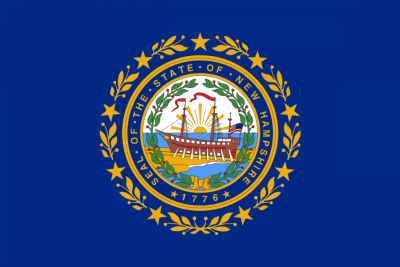New Hampshire

New Hampshire does not have a right of publicity statute. The state recognizes the invasion of privacy, and treats the tort of appropriation of name or likeness as a right of publicity.
Statute
NO
Common Law - Right of Publicity
MAYBE
Federal courts have treated New Hampshire’s appropriation tort as a “right of publicity.”
Doe v. Friendfinder Network, Inc., 540 F.Supp 2d 288 (D.N.H. 2008)
Common Law - Right of Privacy-Appropriation Tort
YES
The state recognizes both a right to privacy and the appropriation branch of that tort as articulated by the Restatement (Second) of Torts § 652.
Remsburg v. Docusearch, Inc., 816 A.2d 1001 (N.H. 2003)
Thompson v. C & C Research and Development LLC, 898 A.2d 495 (N.H. 2006)
Post-Mortem Right
No case has directly considered the issue. However, at least one court considered (though ulitimately rejected on other grounds) an appropriation claim arising out of the use of a deceased person’s identity.
Remsburg v. Docusearch, Inc., 816 A.2d 1001 (N.H. 2003)
Limits on Right
Does the law require the plaintiff or identity-holder to be a celebrity or have a commercially valuable identity?
LIKELY NOT
New Hampshire follows the Restatement (Second) of Torts which does not require that the person’s identity to uniquely have value. Several New Hampshire courts, however, have suggested that the use of the person’s identity must be for its value. One federal court has allowed a right of publicity claim to proceed under New Hampshire law with a plaintiff who lacks any unique commercial value.
Remsburg v. Docusearch, Inc., 816 A.2d 1001 (N.H. 2003)
Doe v. Friendfinder Network, Inc., 540 F.Supp 2d 288 (D.N.H. 2008)
Does the law protect persona?
MAYBE
No court has addressed the question directly, but several courts have allowed for the possibility that right of publicity/appropriation claims could proceed on the basis of information that identifies a person, even if that information is not the use of a person’s name or likeness.
Remsburg v. Docusearch, Inc., 816 A.2d 1001 (N.H. 2003)
Doe v. Friendfinder Network, Inc., 540 F.Supp 2d 288 (D.N.H. 2008)
Is Liability Limited to Uses on Commercial Advertising or Commercial Speech?
NO
The New Hampshire Supreme Court has noted that claims will most often arise in the context of commercial advertising, but did not so limit the claims. A federal district court in New Hampshire has held that claims can proceed even if a defendant’s use is not for financial gain.
Remsburg v. Docusearch, Inc., 816 A.2d 1001 (N.H. 2003)
White v. Ortiz, No. 13-CV-251-SM, 2015 WL 5331279 (D. N.H. Sept. 14, 2015).
Other Commentary
The New Hampshire Supreme Court has held that breach of an endorsement contract does not give rise to an appropriation claim for the continued use of a person’s name and likeness.
Thompson v. C & C Research and Development, LLC., 898 A.2d 495 (N.H. 2006)
